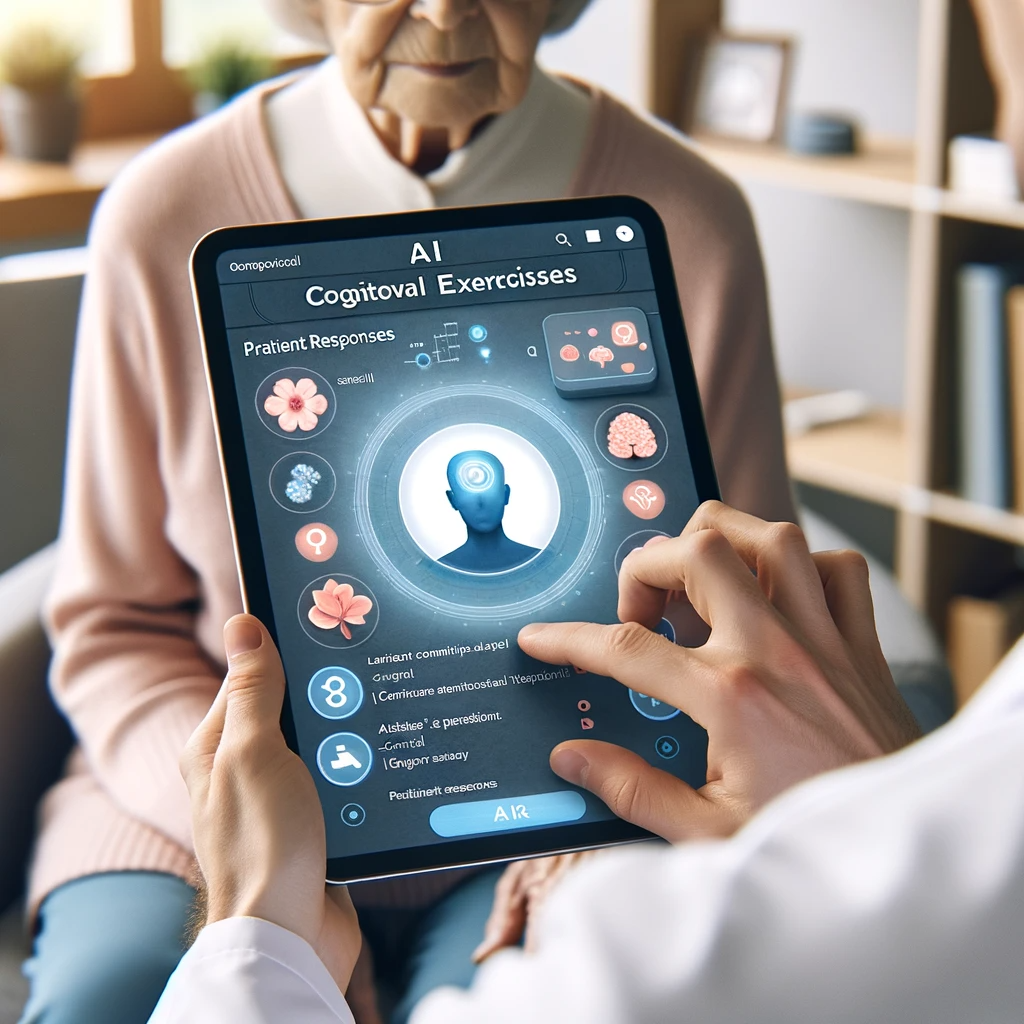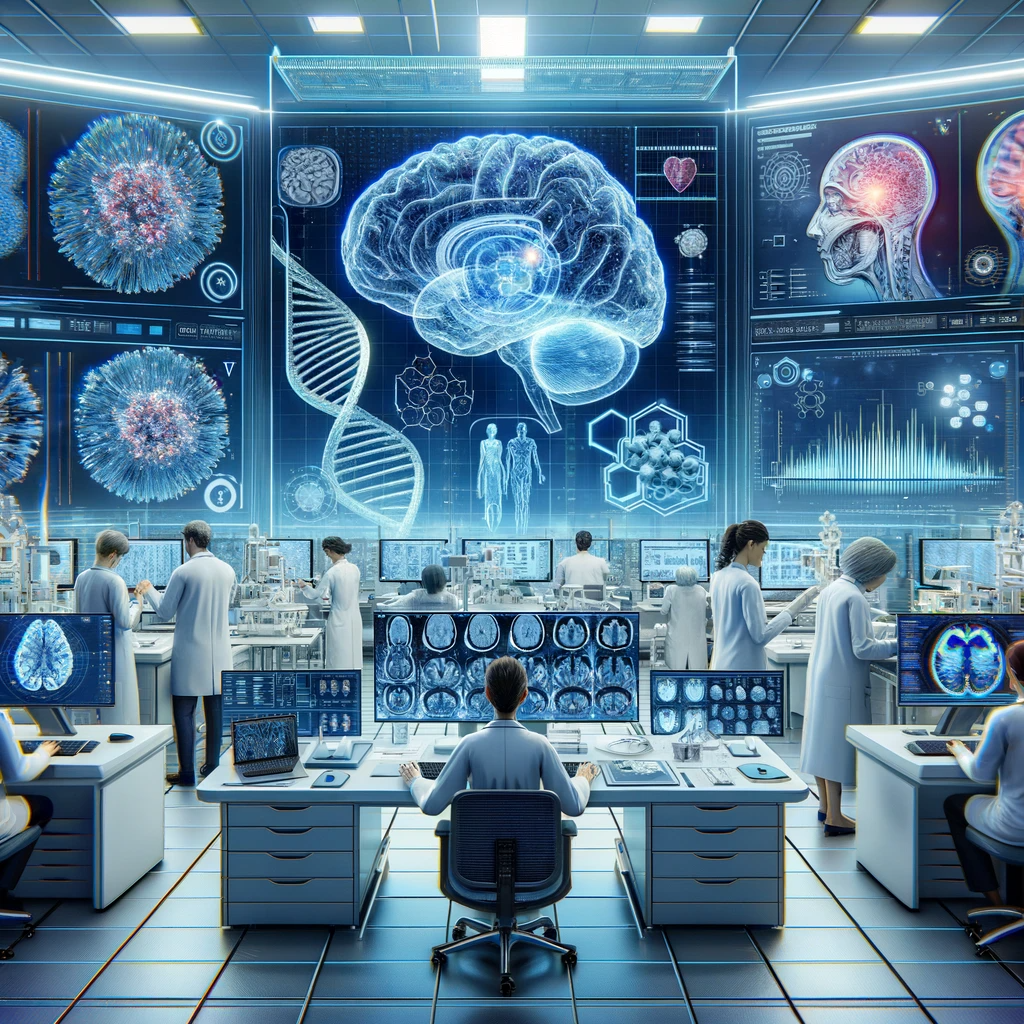Alzheimer’s disease, a relentless neurodegenerative disorder, casts a long shadow over millions of lives. It robs individuals of their memories, their independence, and ultimately, their identity. As the global population ages, the urgency of finding effective treatments and a cure for Alzheimer’s has never been more pressing. Enter Artificial Intelligence (AI), a revolutionary force in healthcare, offering new hope in our quest to understand and combat this devastating disease.
The Alzheimer’s Epidemic: A Looming Crisis
Before we delve into the potential of AI in Alzheimer’s research and treatment, it’s crucial to grasp the scale of the challenge. Alzheimer’s disease affects over 50 million people worldwide, with numbers projected to triple by 2050. It is the most common cause of dementia, a syndrome that affects memory, cognitive function, and daily life.
Alzheimer’s doesn’t just impact individuals; it has far-reaching effects on families, caregivers, and healthcare systems. It is a formidable adversary, and our current treatments are limited in their ability to slow its progression.

AI’s Role in Unraveling the Mystery
The complexity of Alzheimer’s has long confounded researchers. It involves intricate interactions between genetics, proteins, and brain structure, making it a formidable puzzle to solve. This is where AI steps in as a game-changer.
Accelerating Drug Discovery:
One of the most promising applications of AI in Alzheimer’s research is in the realm of drug discovery. Traditional drug development is a time-consuming and expensive process, often taking over a decade to bring a new drug to market. AI’s ability to process vast datasets with lightning speed is transforming this landscape.
Machine learning algorithms can analyze genetic information, protein interactions, and clinical trial data, enabling the identification of potential drug candidates and their efficacy more efficiently than ever before. AI-powered drug discovery reduces the time and resources required to bring new treatments to patients, potentially accelerating breakthroughs in Alzheimer’s therapies.
Early Detection and Diagnosis:
Early diagnosis is critical in Alzheimer’s management. The earlier the disease is identified, the more effective interventions can be. AI is enhancing our ability to detect Alzheimer’s in its early stages, when intervention can have the greatest impact.
Machine learning algorithms can analyze brain scans, blood tests, and biomarkers to identify subtle changes that may indicate Alzheimer’s, often before symptoms manifest. This early detection not only allows for prompt treatment but also provides valuable data for research into the disease’s progression.
Personalized Treatment Plans:
One of the challenges in Alzheimer’s care is that one-size-fits-all treatments are not effective for everyone. People with Alzheimer’s may have different genetic profiles, lifestyles, and disease progressions. AI offers the potential to develop personalized treatment plans based on an individual’s unique characteristics.
By analyzing genetic information, lifestyle factors, and treatment responses, AI can tailor interventions to maximize effectiveness and minimize side effects. This personalized approach holds the promise of improving the quality of life for Alzheimer’s patients and increasing the chances of successful treatment.
Predicting Disease Progression:
Understanding how Alzheimer’s progresses in individual patients is a complex task. AI algorithms can predict disease progression trajectories by analyzing a wide range of factors, including genetic data, biomarkers, and clinical history.
This predictive capability is invaluable for both patients and healthcare providers. It aids in treatment planning, allowing physicians to adjust interventions as needed based on the expected course of the disease. Predictive AI models also assist in resource allocation within healthcare systems, ensuring that the right level of care is provided at the right time.
Unlocking Genetic Insights:
AI is deciphering the genetic underpinnings of Alzheimer’s disease. By analyzing vast genomic datasets, researchers can identify genetic risk factors associated with the disease. This genetic insight opens doors to targeted therapies that aim to address the root causes of Alzheimer’s.
Understanding the genetic basis of Alzheimer’s not only informs drug development but also contributes to our overall understanding of the disease. It sheds light on the mechanisms driving its progression and provides a foundation for future research.
Challenges and Ethical Considerations
While AI brings unprecedented potential to Alzheimer’s research and treatment, it also raises important ethical questions and presents challenges that must be addressed.
Privacy Concerns: The use of sensitive medical data, including genetic information and brain scans, raises privacy concerns. Protecting patient data and ensuring its secure use are paramount in AI-driven research.
Bias and Fairness: AI algorithms can inadvertently perpetuate biases present in the data they are trained on. Ensuring that AI models are transparent, unbiased, and equitable in their predictions is a crucial ethical consideration.
Equitable Access: Making AI-driven Alzheimer’s diagnostics and treatments accessible to all patients, regardless of their socioeconomic status or geographic location, is a challenge that healthcare systems must address.
Responsible Implementation: The responsible deployment of AI in healthcare requires careful regulation and oversight to ensure that technology does not inadvertently harm the very patients it seeks to help.

A Beacon of Hope
Despite the challenges, the synergy between AI and Alzheimer’s research offers genuine hope. With AI’s assistance, we are making strides in understanding the disease’s complexities and accelerating the development of innovative treatments. The collaborative efforts of scientists, AI developers, and healthcare providers are paving the way for a brighter future in the fight against Alzheimer’s.
The journey to defeating Alzheimer’s is a marathon, not a sprint. However, AI has injected new vitality into this quest. It’s a reminder that technology, when harnessed responsibly, can be a potent force for good—a beacon of hope for millions affected by Alzheimer’s and other neurodegenerative diseases.
As we continue to unravel the mysteries of the brain and explore AI’s capabilities, we inch closer to a breakthrough that could change the course of Alzheimer’s disease forever. In the relentless pursuit of a cure, AI may hold the key to unlocking the answers we seek, offering solace to those touched by this formidable adversary.
